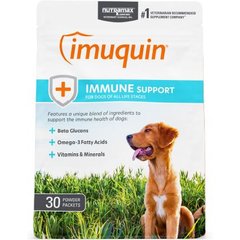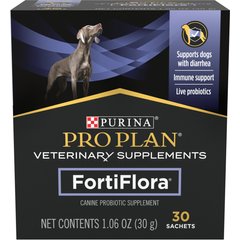Poisons (Swallowed)
Dogs will put almost anything in their mouths, and may view something as simple as a weekly pill holder as a plastic chew toy. Unfortunately, this means they are prone to swallowing all manner of poisonous materials -- most cause unpleasant side effects, but some can be fatal without treatment.
When in doubt, pet proof your home and avoid self-administering over-the-counter medications without first consulting your veterinarian. And if you think your pet may have ingested something poisonous, call your veterinarian or a pet poison helpline immediately!
What To Watch For
Clinical signs will vary depending on the type of poison swallowed. They can be as mild as generalized lethargy, malaise, and weakness to gastrointestinal signs like vomiting, diarrhea, drooling, and nausea. More severe signs can include agitation, excessive sedation, tremors, twitching, seizures, or even coma. Because symptoms vary, always call your veterinarian or the Pet Poison Helpline at 1-855-213-6680 for help.
Vet Recommended Health Support
- Nutramax Imuquin Immune Support Powder Immune Supplement for Dogs, 30 count$24.99Chewy Price
- Purina Pro Plan Veterinary Diets FortiFlora Powder Probiotic Digestive Supplement for Dogs, 30 count$30.99Chewy Price
- Purina Pro Plan Adult Sensitive Skin & Stomach Salmon & Rice Formula Dry Dog Food, 16-lb bag$54.48Chewy Price
- Virbac Epi-Otic Advanced Ear Cleaner for Dogs & Cats, 4-fl oz bottle$12.34Chewy Price
Primary Cause
Most poisons are ingested by accident, when an inquisitive dog finds unsecured substances lying around. Sometimes, owners may self-medicate their pet, only to find out days later, when their pet is symptomatic, that the medication is poisonous to pets due to their altered ability to metabolize certain drugs.
Immediate Care
- If your pet has accidentally ingested something poisonous, immediately remove him or her from the source of poison. However, you first must determine if it is safe to do so. Some substances require special safety equipment for handling (i.e., rubber gloves, masks, etc.).
- If possible, identify the poison and have the contents available for your veterinarian to evaluate. Having the labels and/or containers of the material or medication is extremely helpful, too.
- If the dog has vomited, gather a sample of it in a plastic bag and save it for your veterinarian. It may be used for testing and analysis. However, never induce vomiting without consulting with your veterinarian or the Pet Poison Helpline at 1-855-213-6680 first, especially if it is unconscious. Certain types of poisons can be made worse when vomiting is induced.
- Contact the Pet Poison Helpline on the way to the veterinarian or emergency clinic. It may help you relay important information to the doctors.
Instructions for poisoning with household products:
Some common types of household products include acids, alkalis, or petroleum-based hydrocarbons such as:
- Drain cleaner
- Oven cleaner
- Toilet cleaner
- Dishwasher granules/tablets
- Laundry soaps/detergents
- Kerosene
- Gasoline
- Paint thinner
- Paint stripper/remover
- Lye
- Furniture polish
- Floor polish
- Shoe polish
- Wood preservative
- Caustic soda
- Chlorine bleach
If your pet is exposed to any of these products:
- Stay calm!
- Contact a veterinarian immediately and tell them you are on your way; this will allow them to prepare for your arrival.
- Move your pet to a safe area (away from the poison), if possible.
- Check to see if your dog is breathing. If not, perform CPR on the animal.
- If your pet begins to tremor or convulse, move her to a safe area where she won’t injury herself(away from stairs or furniture).
- Always take the dog to the vet as soon as possible, as your vet may need to pump your dog’s stomach (called "gastric lavage") or administer activated charcoal to bind up any toxins in the stomach.
Instructions for poisoning with acids, alkalis, and petroleum products:
- If your pet swallowed anything caustic (i.e., acids or alkalis), do not administer home remedies. Neutralizing the chemical ingestion can, in and of itself, cause a chemical reaction, which can further aggravate the dog's injuries.
- Instead, flush your pet’s mouth out with tepid water for 15 to 20 minutes by using a shower head or kitchen sink spray hose. Try not to point the hose to the back of the mouth, though. The water may go into the lungs, which can complicate the situation. It is better to clean the mouth from different angles.
- Never induce vomiting without consulting a veterinarian or the Pet Poison Helpline first, as sometimes you can make your pet worse by inducing vomiting.
- Burns in the mouth often take hours to show up. Just because you don’t see any injury, doesn’t mean it’s not occurring! Also, burns may only show up in the esophagus or stomach, where you can’t visualize them.
- If your pet is unconscious, seek immediately veterinary care!
- If your pet swallowed a petroleum product, do not induce vomiting. This can make your pet worse, and these substances are easy to aspirate into the lungs, making your pet develop a potentially severe aspiration pneumonia.
- If the dog has licked the substance, refer to Burns and Scalding for treatment of chemical burns in the mouth.
Other important points to consider:
- If your veterinarian recommends inducing vomiting, use fresh, non-expired, bubbly hydrogen peroxide as directed by your veterinarian. It is no longer recommended to use syrup of ipecac, salt, or any home remedies, as this can make your pet worse.
- Do not administer activated charcoal products that you have at home – these aren’t as effective as what your veterinarian can give
- If your veterinarian or emergency clinic cannot be reached, call an animal poison helpline.
Prevention
Treat your dog as you would a young, inquisitive child:
- Crate train your dog -- this is the best way to prevent accidental toxicities!
- Pet proof your house adequately, making sure all dangerous substances (i.e., medication, chemicals, household products) are stored in secured cabinets or closets, out of reach of inquisitive paws and noses.
- Do not allow your dog to play in areas where chemicals are stored.
- Keep the garage floor or parking space free of oil, antifreeze, and petroleum products, even minor spills. Antifreeze is especially toxic and enticing to dogs because of its sweet taste, and should be stored away securely.
- Store your medication in a separate area from your pets’ medications. This will help prevent you from giving your own medications to your pet by accident.
- Carefully read the label of the prescription vial to make sure you’re administering the correct drug to your pet.
- If you keep pills in a weekly pill holder, make sure to put this in an elevated cabinet, instead of on the kitchen counter. Dogs view these as plastic chew toys (they even rattle inside with all those pills!), and can easily chew through this.
- Do not store your pills in a plastic storage bag (i.e., Ziploc) -- these can easily be chewed through, exposing your dog to many medications all at once.




